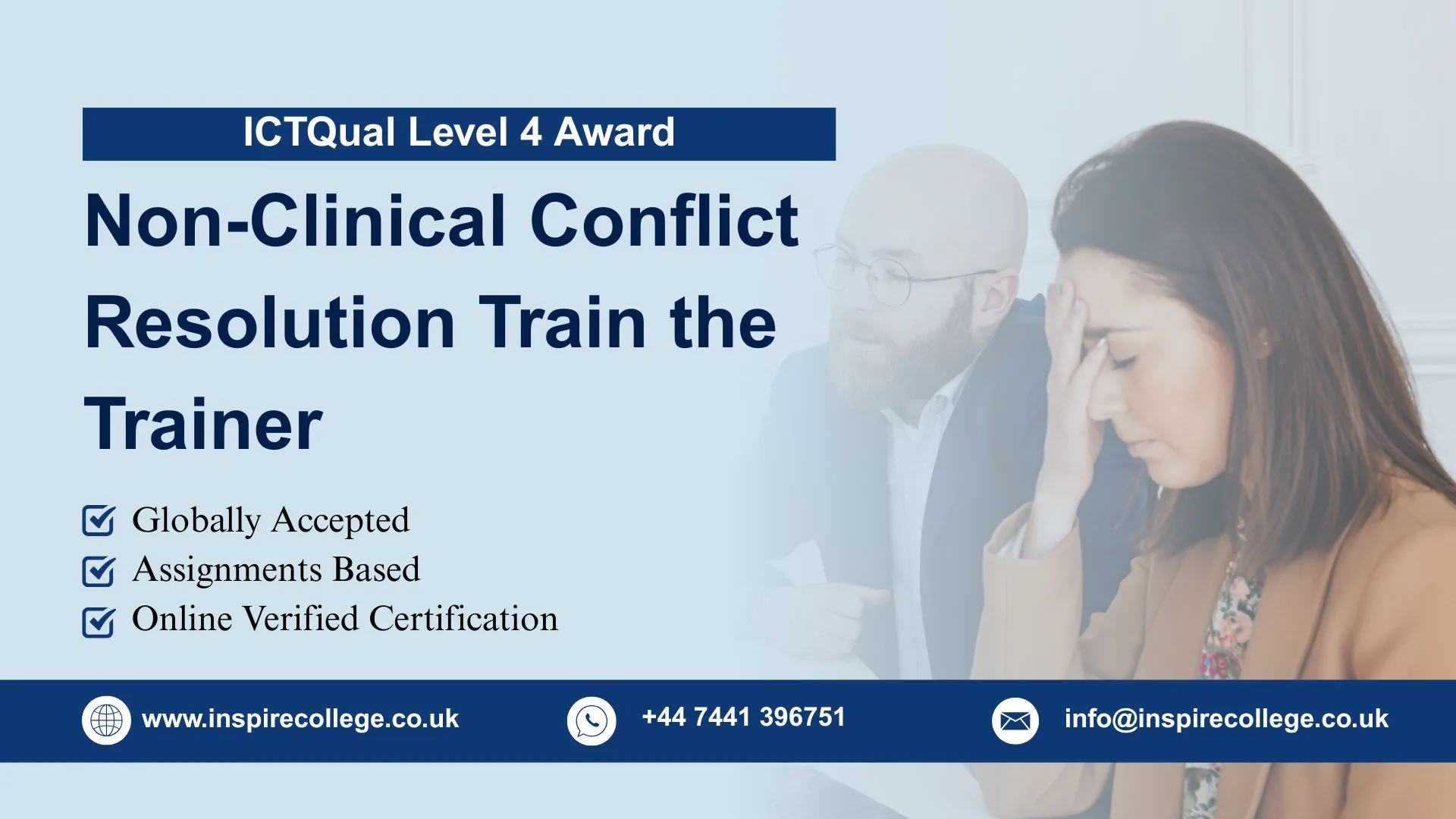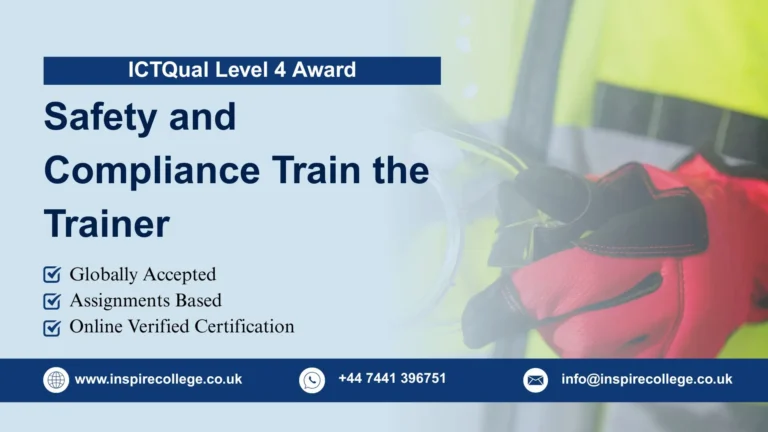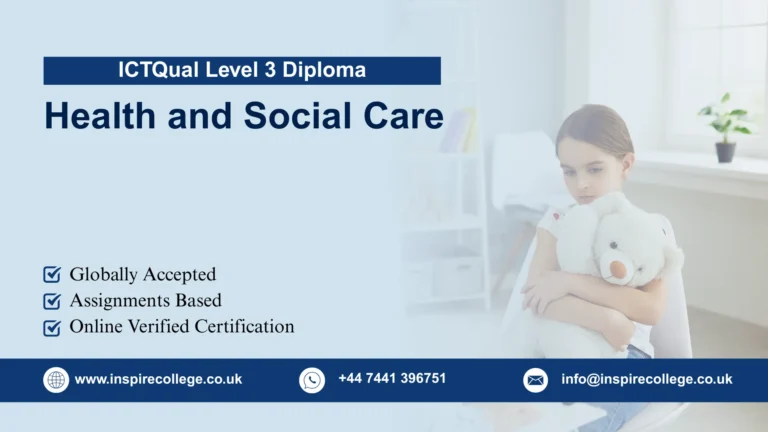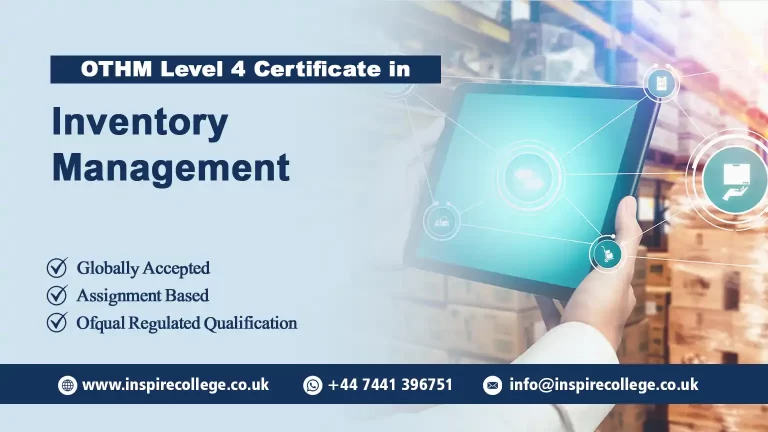
ICTQual Level 4 Award in Non-Clinical Conflict Resolution Train the Trainer
The ICTQual Level 4 Award in Non-Clinical Conflict Resolution Train the Trainer is a specialist qualification designed for individuals who aim to train others in managing and resolving conflict within non-clinical environments. It addresses the growing need for skilled trainers in sectors where personnel regularly encounter challenging interactions, such as customer service, facilities management, and administrative roles within healthcare, education, and other public-facing services. This award provides learners with the ability to deliver high-quality conflict resolution training that complies with professional and organisational standards.
Conflict in non-clinical settings often arises due to miscommunication, unmet expectations, or environmental stressors. While these confrontations may not involve clinical care, their impact on staff wellbeing, service delivery, and organisational reputation can be significant. The Level 4 Award equips trainers with the theoretical understanding and practical tools necessary to teach others how to manage these situations constructively and confidently. It ensures that learners can develop and deliver tailored training sessions that reflect real-world challenges and encourage proactive communication and de-escalation techniques.
Gaining the ICTQual Level 4 Award enhances a professional’s credibility as a qualified trainer in conflict resolution. It opens opportunities to deliver in-house training programmes, develop tailored workshops for external clients, or contribute to policy and procedure improvements within organisations. Additionally, the qualification may serve as a stepping stone towards higher-level education and roles in learning and development, risk management, or compliance.
The ICTQual Level 4 Award in Non-Clinical Conflict Resolution Train the Trainer is a valuable qualification for professionals seeking to formalise and expand their expertise in managing workplace conflict. Through its structured curriculum and practical focus, the course empowers learners to become effective trainers who can help organisations foster safer, more cooperative working environments. As the demand for skilled conflict resolution continues to rise across multiple industries, this award provides the essential foundation for those committed to promoting positive, respectful, and professional interactions.
To enrol in the ICTQual Level 4 Award in Non-Clinical Conflict Resolution Train the Trainer, applicants typically need to meet the following criteria:
- Must be at least 18 years of age at the time of enrolment
- A minimum of a Level 3 qualification or equivalent in any subject area is preferred
- Relevant experience in a non-clinical role involving conflict management or people-facing responsibilities is required
- Prior experience in delivering training or presentations is advantageous but not mandatory
- Competency in English language equivalent to Level 2 is essential for understanding course content and completing assessments
Mandatory Units
The ICTQual Level 4 Award in Non-Clinical Conflict Resolution Train the Trainer qualification consists of 10 mandatory units required for completion.
Mandatory Units
| Unit# | Unit Title |
| 1 | Introduction to Conflict Resolution Training |
| 2 | Fundamentals of Conflict Dynamics |
| 3 | Communication Skills for Conflict Resolution |
| 4 | Mediation and Negotiation Techniques |
| 5 | Training Design and Delivery |
| 6 | Assessing Learning and Providing Feedback |
| 7 | Ethical and Legal Considerations in Conflict Resolution Training |
| 8 | Practical Application and Role-Playing Exercises |
| 9 | Developing Training Resources and Materials |
| 10 | Continuous Professional Development and Growth |
Here are the learning outcomes:
1. Introduction to Conflict Resolution Training
- Understand the purpose and scope of conflict resolution in non-clinical settings
- Identify the trainer’s role in delivering effective conflict management programmes
- Recognise the importance of building a safe and inclusive learning environment
2. Fundamentals of Conflict Dynamics
- Explain the causes, stages, and outcomes of conflict
- Understand behavioural responses to conflict in workplace scenarios
- Analyse the impact of unresolved conflict on individuals and organisations
3. Communication Skills for Conflict Resolution
- Apply active listening and assertive communication techniques
- Recognise verbal and non-verbal communication cues in conflict situations
- Adapt communication styles to suit different individuals and scenarios
4. Mediation and Negotiation Techniques
- Understand the principles of mediation and negotiation in resolving conflict
- Demonstrate key techniques for facilitating positive dialogue between parties
- Identify the trainer’s role in modelling mediation and negotiation approaches
5. Training Design and Delivery
- Plan structured training sessions using appropriate learning objectives
- Use varied delivery methods to engage diverse learner needs
- Manage group dynamics and maintain learner engagement throughout sessions
6. Assessing Learning and Providing Feedback
- Use formative and summative assessment techniques to evaluate learning
- Provide clear, constructive feedback that supports learner development
- Reflect on assessment outcomes to inform future training delivery
7. Ethical and Legal Considerations in Conflict Resolution Training
- Understand legal responsibilities related to conflict resolution and training
- Apply ethical principles when designing and delivering training sessions
- Promote professional standards, equality, and inclusivity in training environments
8. Practical Application and Role-Playing Exercises
- Facilitate realistic role-play scenarios to reinforce conflict resolution techniques
- Provide feedback and guidance during practical exercises
- Evaluate learner performance in simulated conflict situations
9. Developing Training Resources and Materials
- Create clear, engaging, and accessible training materials
- Tailor content to suit specific audiences and learning needs
- Integrate multimedia, case studies, and scenario-based resources effectively
10. Continuous Professional Development and Growth
- Identify personal strengths and areas for improvement as a trainer
- Develop a plan for ongoing professional development
- Engage in reflective practice to maintain training effectiveness and relevance
The ICTQual Level 4 Award in Non-Clinical Conflict Resolution Train the Trainer is a professional qualification tailored for individuals who aspire to deliver effective, engaging, and legally sound conflict resolution training within non-clinical environments. To ensure successful participation and progression, it is important to consider the attributes and background of the ideal candidate.
This qualification is best suited to individuals who possess a combination of practical experience, communication skills, and a strong interest in training and development. The course requires learners to apply theoretical knowledge in practical scenarios, making it essential that candidates are comfortable with both reflective learning and interactive delivery methods.
Ideal Learner Profile
- Age and Maturity
- Aged 18 years or older, with the maturity to engage in professional training settings
- Able to manage responsibilities associated with delivering training to adult learners
- Professional Background
- Currently working in or with experience in a people-facing, non-clinical role
- Ideal for individuals in sectors such as customer service, education support, facilities management, housing, or administration
- May hold or aspire to hold responsibilities in staff development, training coordination, or behaviour management
- Experience and Skills
- Demonstrates prior experience in managing or supporting others through challenging or confrontational situations
- Possesses strong interpersonal and communication skills
- Comfortable with speaking in front of groups and facilitating discussions
- Educational Competence
- Holds at least a Level 3 qualification or equivalent (desirable but not mandatory)
- Has the ability to understand and apply theoretical concepts to real-world scenarios
- Competent in reading, writing, and comprehending English to at least Level 2 standard (e.g., GCSE English or IELTS 5.5 equivalent)
- Personal Attributes
- Displays professionalism, empathy, and emotional intelligence
- Motivated to support organisational wellbeing and staff safety through effective training
- Committed to personal and professional development within the training and conflict resolution field
This learner profile helps ensure that candidates can fully engage with the content, meet assessment expectations, and successfully transfer their learning into meaningful training practice across various organisational settings.
Register Now
FAQs for ICTQual Level 4 Award in Non-Clinical Conflict Resolution Train the Trainer






